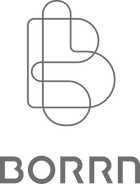In an experimental study carried out by Trinity College Dublin in 2020, it was recorded that plastic baby bottles could release an average of 4 million microplastic particles per litre into baby formula during preparation.
Another research in recent times has shown just how harmful ingesting microplastic can be, potentially even causing damage to the human body such as cell death, allergic reactions, and even damage to cell walls.
It’s likely you’ve also probably heard of Bisphenol-A, also known as BPA. Many plastic products, including baby bottles, are advertised as BPA-free, but what exactly does this mean?
Well, bisphenol-A is a bisphenol-based chemical compound. But, it is not the only bisphenol-based compound, meaning more variations of these toxic chemical compounds could be contained in the plastic bottle, also being digested by your baby.
BPA has been shown to affect children’s behaviour with some studies suggesting a possible link between BPA consumption and the following effects:-
- Early puberty
- Breast and prostate cancer
- Impaired learning
- Hyperactivity
It’s clear that the consumption of plastics should be avoided altogether, especially for the little ones.
Almost all baby feeding bottles (whichever the brand is) on the markets have adopted SILICONE material as the teat (nipple) component. Why not adopting SILICONE to make the bottle body?
Now BORRN has advanced it to make it a REAL Silicone baby bottle (100% Silicone Inner Space) so that the contents your baby takes in will not touch plastics at all.


Leave a comment